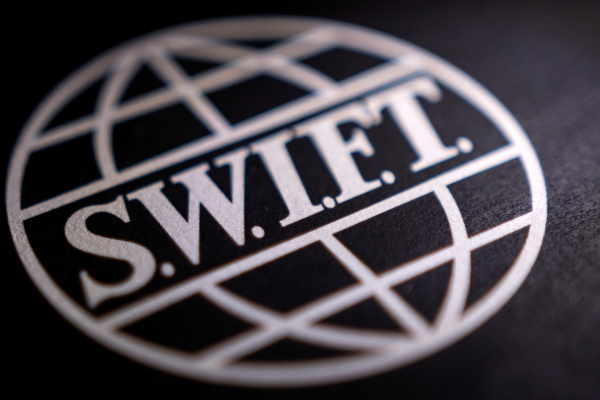The blockchain start-up that’s revolutionising cancer research
Sponsored by OncoCoin
Patient healthcare data is the answer to curing the deadliest cancers. This app helps them to share that data securely.
Cancer is one of the biggest unsolved medical mysteries of our time. Breakthroughs in personalised medicine and huge steps in prevention may suggest we are moving in the right direction, but the numbers say otherwise. The International Agency for Research on Cancer predicts that by 2040 the cases of cancer in UN countries could increase by as much at 47 per cent from 2020. As the incidence of cancer increases globally, we need to ask ourselves what can be done to reduce the unnecessary deaths caused by this complex set of diseases.
For a disease with more than 200 types and sub-types, the answer was never going to be simple. But billions of euros funneled into cancer research annually is uncovering new paths for research into individual cancer types and stages. Over the past ten years, the number of oncological trials being initiated per year has grown by 60 per cent, from 2,500 in 2007 to nearly 4,000 in 2017 (National Institute of Health). However, for oncology therapies tested in clinical trials, the likelihood of success is only around 5 per cent (Thomas et al.) – meaning the real impact of this research on the advancement of therapy options for patients is minimal.
A necessary shift from traditional R&D
This calls for a shift in cancer research. There are fatal flaws in the traditional process of research and development (R&D). For example, when generating hypothesis, researchers scope manually through thousands of papers to identify promising new molecules or combinations. Furthermore, the availability of data is poor, due to the number of clinical trials which never get published. Insights from failed trials often never reach researchers, creating inefficiency through repeating the same mistakes.
New methods of conducting this research include using AI. One company, Innoplexus, uses AI to search terabytes of data from across the published and unpublished research world, filter it for reliable sources related to life sciences, and organise it for researchers. This way, the process of hypothesis generation for clinical trials is accelerated.
However, AI alone is not always enough. Despite offering a huge benefit over classical R&D, there are research gaps that only real-world data (RWD) can fill. RWD comes directly from patients, most commonly used for reviewing post-market safety and efficacy of therapies. However, by integrating RWD at different stages in the clinical trial process, we can significantly speed up and improve the likelihood of success of therapies from the outset.
How do we collect this data? Haven’t those who have been through cancer had enough of hospital visits and scans? CURIA by OncoCoin is setting out to answer these questions, making the collection of RWD to drive forward cancer research easier for patients and researchers.
Revolutionising patient participation
The CURIA app aims to create a new world of possibilities for patient participation and research. At its core it is designed to provide patients with vital information to help them manage their disease and make the important decisions about their treatment journey. Patients also have access to services such as a second opinion, the ability to be matched with the most similar patient in the app to share experiences, and other in-app offerings.
Now comes the crux of how this patient ecosystem can revolutionise cancer research. Researchers can submit studies, surveys or questionnaires to the app, in which patients can choose to participate. Information collected may include blood reports, pathology reports, doctor’s letter, or researchers may be looking to ask more qualitative questions – for example, regarding quality of life. The data patients share is licensed out to researchers securely over blockchain, meaning patients always remain in control. Furthermore, patients are rewarded for their contribution with OncoCoin tokens, which increase in value as the value to the data comes to fruition.
Projects such as this empower patients to own their own data and by more involved in their cancer journey. Statistics show that patients who feel empowered during their cancer journey report a better standard of care and are even shown to have improved clinical outcomes (Bailo et al 2019). With more empowered patients who take control of their cancer journey, and participating in clinical research, the status quo of cancer has a positive future.
AI and blockchain are unlikely to disrupt the healthcare space fully without working in parallel with patients. The more we can do to make technologies more accessible to patients, offering them hope to change the course of their cancer journey while contributing to cancer research, the closer we will come to curing this deadly set of diseases.
To learn more about OncoCoin and the new revolution to transform cancer research, visit www.oncocoin.ai
by Dr Gunjan Bhardwaj, CEO Innoplexus AG and Chairman, OncoCoin AG
- International Agency for Research on Cancer. Cancer Tomorrow. Accessed 2 August 2021 at: gco.iarc.fr/tomorrow/en/dataviz/bubbles?mode=population&populations=160_356
- National Institute of Health. Trends, Charts, and Maps. Accessed 2 Aug 2021 at: clinicaltrials.gov/ct2/resources/trends
- Bailo, L, Guiddi, P, Vergani, L, Marton, G, & Pravettoni, G (2019). The patient perspective: investigating patient empowerment enablers and barriers within the oncological care process. Ecancermedicalscience, 13, 912. doi.org/10.3332/ecancer.2019.912
- Thomas, D. et al. (2016). Clinical Development Success Rates 2006-2015. Amplion, Biomedtracker, Biotechnology Innovation Organization. pp. 8, 14.

Business Reporter Team
Most Viewed
23-29 Hendon Lane, London, N3 1RT
23-29 Hendon Lane, London, N3 1RT
020 8349 4363
© 2024, Lyonsdown Limited. Business Reporter® is a registered trademark of Lyonsdown Ltd. VAT registration number: 830519543
Join the Business Reporter community today and get access to all our newsletters, and our full library of talk show episodes
Join the Business Reporter community today and get access to all our newsletters, and our full library of talk show episodes





